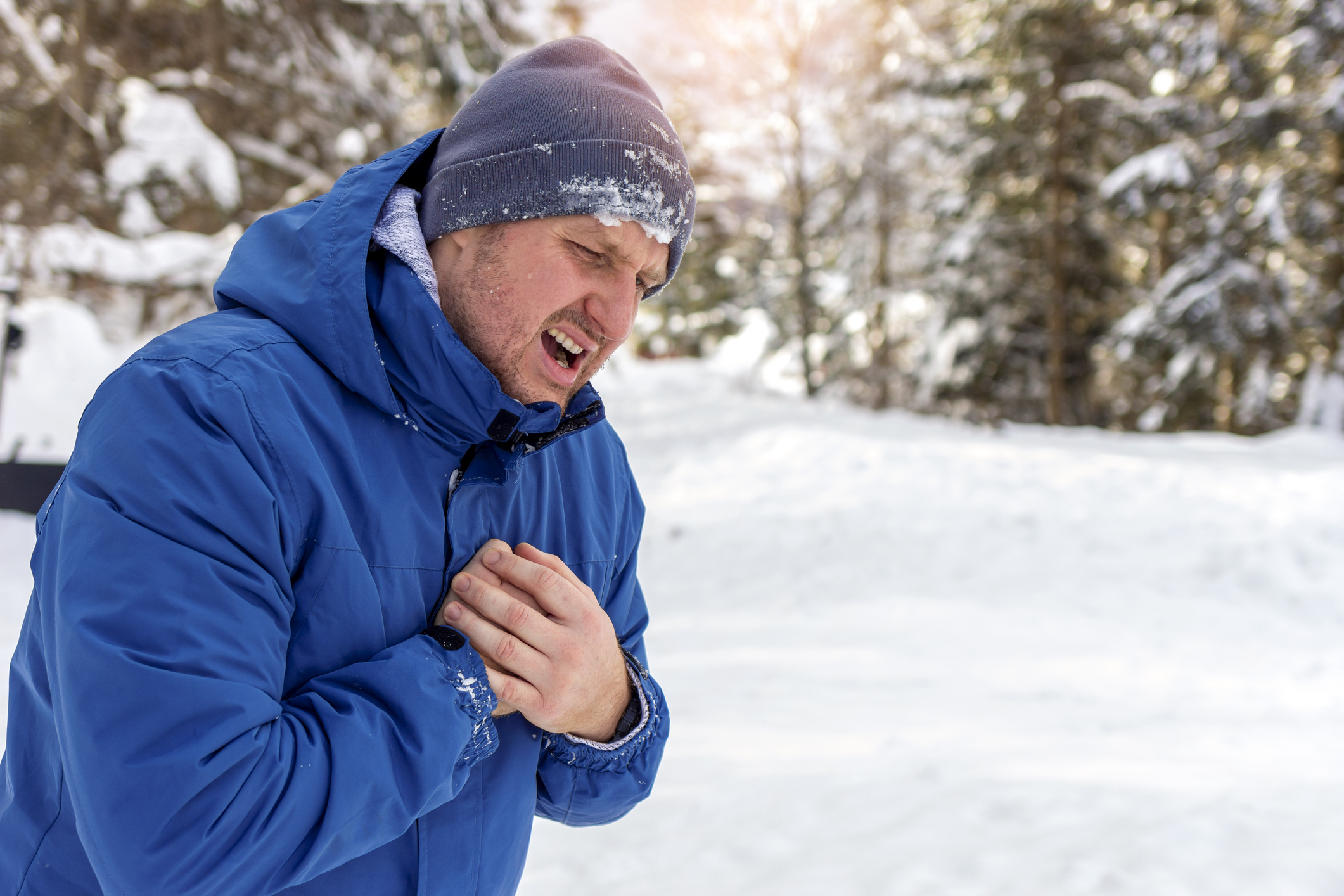

As the cold weather approaches, you know that you have to protect yourself from minor ailments like flus and colds. But what about more serious conditions… like heart attacks?
Research shows the colder it gets, the more likely you are to have a heart attack.
In fact, researchers from Lund University in Sweden recently found that people were significantly more likely to have a heart attack when temperatures plummeted…
Four more heart attacks a day below freezing
In their study, these researchers analyzed 16 years’ worth of meteorological data and health data from more than 280,000 people. They concluded that there were four more heart attacks per day when temperatures were below 32 degrees than when they were above 50 degrees… which is a scary thought with winter right around the corner.
“Our results consistently showed a higher occurrence of heart attacks in sub-zero temperatures,” said the study’s first author Dr. Moman A. Mohammad, from the Department of Cardiology at Lund University. “The findings were the same across a large range of patient subgroups, and at national as well as regional levels, suggesting that air temperature is a trigger for heart attack.”
You read those words right… air temperature is a trigger for a heart attack. The question is, why? And what can you do to protect yourself?
What’s behind the cold weather-heart attack connection?
Now, researchers in this study only looked at existing data and observed a pattern, so they don’t know with any certainty what factors contributed to the increased heart attack risk they witnessed. They have a few theories, though…
One theory relates to how cold weather impacts your blood vessels. Cold weather constricts blood vessels that are close to the surface of the body (known as superficial blood vessels), which increases blood pressure. As you know, high blood pressure doesn’t bode well for your heart.
Cold weather also increases your heart rate, which then increases your metabolic rate and body temperature — all of which could be taxing your ticker.
Researchers say these changes aren’t necessarily a problem for most people. But if you have plaques lurking in your coronary arteries, they can be the last straw that triggers a heart attack.
Of course, there are other potential factors that could trigger winter heart attacks, like:
- Higher amounts of respiratory infections and influenza (which also increase the likelihood of heart attacks)
- Less activity and poorer diets. It’s easy to fall into a winter slump of couch time and comfort food.
- An increased likelihood of overexertion. In the winter, you may be tempted to do something that requires a lot of physical effort and puts stress on your heart, like shoveling a few feet of snow or pushing a car out of a snow embankment.
A cold weather heart health plan
As you’re gearing up for winter, you can do a lot to improve your heart health and lower your overall heart attack risk. Changing your diet is a great starting point. Fill your plate with foods that are known to lower heart disease risk, like:
Make sure to avoid foods that are known contributors to heart problems as well.
Most importantly, keep up with exercise in the winter months. Some of the best exercises for your heart include high-intensity interval training, yoga, weight training and brisk walking.
Consider joining a gym during the winter months, finding an enclosed walking track (or mall) or doing aerobic type exercise via web or video in the comfort of your home.
Learning how to manage negative emotions can help too. Anger and grief have both been tied to an increased heart attack risk, while maintaining an optimistic perspective could reduce your heart attack risk as much as 50 percent.
Once winter hits, make sure to take common-sense precautions to keep your heart safe, like not shoveling a ton of wet, heavy snow… especially if you’re not in tip-top physical shape. But even if you are, think twice before you overexert your body and put your heart and health at risk.
